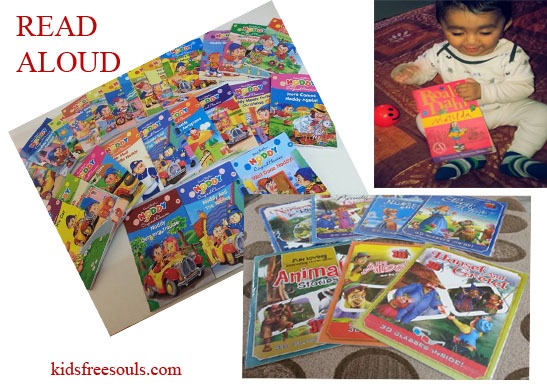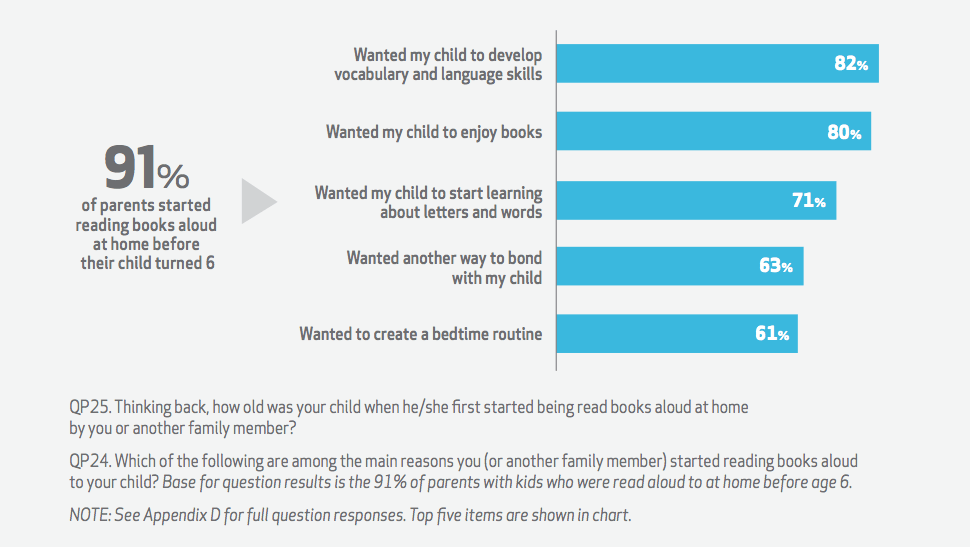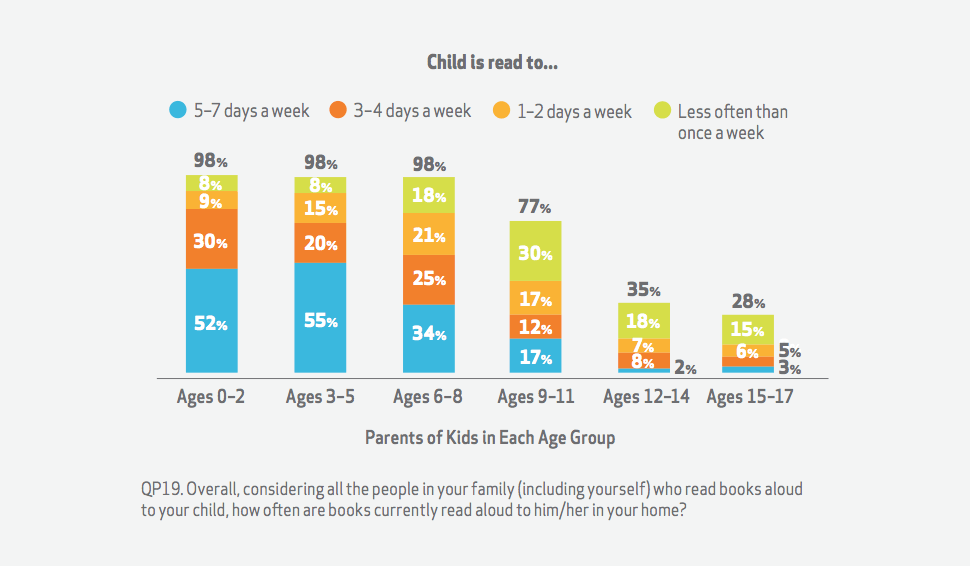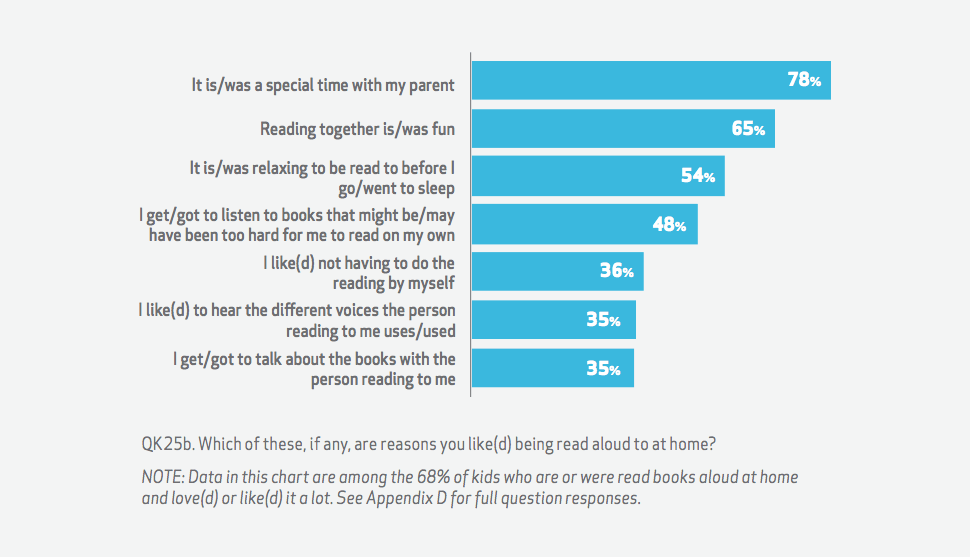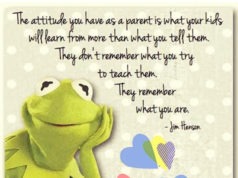Reading aloud to children helps them develop oral language. It teaches them how to listen and how narrative is structured.
They also learn vocabulary and how print works and that it is read from left to right,” says UAB Associate Professor of education Kathleen Martin. She further says, “Reading aloud helps to develop oral language. It teaches children how to listen and how narrative is structured. They also learn vocabulary and how print works and is read from left to right.”
Scholastic Kids & Family Reading ReportTM: (http://www.scholastic.com/readingreport/reading-aloud.htm)
Fifth Edition is information on what kids want in books, findings taken from a nationally representative survey of parents and
students. You can read more about that in the post below about Reading aloud books to children at home.
Nine in 10 parents (91%) say their children are read books aloud at home before age 6, primarily to develop their child’s vocabulary and language skills and to foster reading
enjoyment.
Percentage of Parents Who Say Their Child Was Read Books Aloud at Home Before Age 6 and Reasons Reading Aloud Started
Base: Parents of Children Ages 0–17
More than half of children ages 0–5 (54%) are read aloud at home 5–7 days a week. This declines to only one in three kids ages 6–8 (34%) and to one in six kids ages 9–11
(17%).
Frequency with Which Parents Say Their Child is Read Books
Aloud at Home
Base: Parents of Children Ages 0–17
Nearly one in four parents of children ages 6–17 (23%) stopped reading aloud to their children before age 9, most often citing reasons related to their child reading
independently.
Percentage of Parents Who Say Their Child Stopped Being Read Books Aloud at Home Before Age 9 and Reasons Reading Aloud Stopped
Base: Parents of Children Ages 6–17
75%said my child is old enough to read ; 58% revealed my child wanted to read independently; 49% wanted to promote reading independently
As a child grows up gracefully, it is normally felt that they can now read independently and do not require to be read aloud. However, many children ages 6–11 (40%) did not
want their parents to stop reading aloud to them.
In the age group of 6-8 – 48% loved – 38 % liked to read aloud at home.
In the age group of 9-11 – 43% loved – 42% liked to read aloud at home.
In the age group of 12-14 – 40% loved – 40% liked to read aloud at home.
The top reason children say they enjoy being read aloud to is that it’s a special time with their parents.
96% parents below 5 said it is important for their kids to read books for fun. 61% believed it was extremely important whereas 35% revealed as very important. From age group
6 – 17, the percentage went lower to 45% as extremely important.
89% said, Developing Vocabulary and language skills and using their imagination are the top benefits they want their kids to gain from reading books for fun. 86% for using
imagination. 76% excited about reading. 74% being successful in school and 61% for spending time away from Technology.
It is important to note that Six in 10 parents of children ages 0–5 (60%) received advice that children should be read aloud to from birth, yet just under half of parents in
lower-income households (47%) received this advice. The common advice to read aloud came from books, magazines, friends, family and pediatricians.
Reasons for Reading Aloud
At a time when reading is on back seat and Technology steps in the front with kids turning more savvy with gadget use and computers, here is some interesting information you
can find at Scholastic. State of Kids and reading, What Kids want in Books, Reading in School, etc are the other topics that you might be interested to take a peek-a-boo.
Some insights – Why Read Aloud
Swagat Children Library (https://www.kidsfreesouls.com/index.php/Swagat-Children-Library/) conducted ‘Read Aloud’ Sessions. The results are not only amazing, children wanted to read more and even narrated the stories with expressions. Enhanced vocabulary and fluency in reading was found. Also provided stage platform to break stage fear and face the audience. Voice modulation is evaluated. Short stories/lessons to be taken for loud reading. Kids friendly books, magazine articles will spark interest and discussion to add dimension to reading. Reading dramatically will draw interest to kids keeping in mind the phonics and style of reading. To add creativity, add the word cloud theme online. Just go for Creativity online for Projects – A word Art ‘Words as image’ and choose words from read aloud. Word clouds, shapes and different text, colors etc is just fun esp. when images are needed for Projects. I have used this in my Swagat Children Library classroom assignments and kids love to explore online smile emoticon Tagxedo, wordle.net, typoeffects.com and many more….?#?Parents? and ?#?Teachers? only need to explore with the children and have fun.
Why Read Aloud?
Reading aloud is more than fun – it’s an effective teaching strategy.
Provides an opportunity to share your favorite stories, novels, and poems with the whole class
Provides a chance to address important themes like friendship, courage, prejudice, bullying, etc.
During Reading Workshop, allows to teach strategy mini lessons to the whole class (or stories) since everyone is listening to the same selection (having read the same book in library)
Models fluent reading for students
Introduces students to vivid and specific vocabulary
Offers a chance to use questioning strategies to explore concepts in the selection
– kidsfreesouls News Desk


